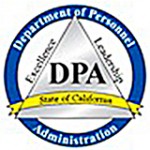Expert Interview – Kenneth Merchant, Deloitte & Touche LLP Chair of Accountancy, University of Southern California, USA
 For the report Performance Management in 2012, The KPI Institute conducted 12 semi-structured interviews with practitioners, academics and consultants, who offered rich insights into the state of Performance Management as a discipline.
For the report Performance Management in 2012, The KPI Institute conducted 12 semi-structured interviews with practitioners, academics and consultants, who offered rich insights into the state of Performance Management as a discipline.
Kenneth Merchant, Deloitte & Touche LLP Chair of Accountancy at the University of Southern California, USA was one of the academics that The KPI Institute interviewed.
1. What does the term Performance Management mean to you?
It’s a broad term. I would include anything that is done to bring about the desired performance.
2. What drives interest in Performance Management?
I am not sure there is a lot of interest in Performance Management, per se. I don’t see that term used a lot. But there is continuing interest in many of the topics that would be included under the Performance Management rubric, and interest in some of them (e.g., Balanced Scorecards) has swelled at particular points in time.
3. What are your thoughts on the relationship between performance management at organizational, departmental and individual level?
This is one of the great unknowns that deserve much more academic study. How do the financial measures used predominantly at the corporate level get translated to and from the more operational measures that are used to manage at the lower levels of the organization?
4. What are the 2012 key trends in Performance Management from the perspective of your knowledge and experience in this field?
There has been a lot of progress in understanding which nonfinancial measures of performance are leading indicators of financial (and stock market) performance. There is also a broader conceptualization of performance management, to include specific goals, such as environmental (social responsibility) performance.
5. What aspects of performance management should be explored more through research?
There are lots of possibilities here. The topic I would put on the top of the list is how to build a combination-of-measures system. Financial measures, by themselves, are insufficient. With what measures should they be supplemented in various settings, and how should all the various measures included be weighted in importance?
6. Please provide some examples of organizations which you would recommend for study due to their approach to performance management and achievements?
It is difficult to say which organizations are doing the best job in this area. I would suggest studying organizations that are generally recognized to be well-run, such as the “most admired” list that is published in the U.S. I would also suggest studying organizations that are doing something different—the outliers—as they might be developing the innovative practice that will lead us to something better.
7. Which are the main challenges of Performance Management in practice today?
It is a complex area. There are lots of dimensions of Performance Management. Clearly organizations of different types should not be doing everything the same way. There are even multiple good alternatives for organizations of the same type (“equifinality”). And it is difficult to measure success. So practice in this area is guided by judgment and intuition, rather than by hard scientific findings. Perhaps some of what is being done is merely folklore, not fact. It is hard to sort it all out.
8. What do you think should be improved in the use of performance management tools and processes?
I think there is a rush to pushes of new products being sold by consulting firms (e.g., balanced scorecards, beyond budgeting) without a firm understanding of the phenomena underlying them. We need a lot more scientific research.
9. What would you consider best practice in performance management?
What the best-run companies are doing. It’s a mix of financial and nonfinancial measures and short-run and long-run incentives, with clear goals and useful feedback. It is hard to say more than that.
10. Which aspects of performance management should be emphasized during educational programs?
Many educational programs emphasize memorization of terms and practice on very simple problems. Instead, I think we should be trying, first and foremost, to help students cope with what they will face in the complex real world. Throw real, complex problems at them. Help them develop their abilities to sort through the complexity—their problem finding, critical thinking and problem solving skills. There are trade-offs to almost every approach. Students should practice understanding those trade-offs.
11. What are the barriers to achieving higher levels of proficiency in performance management among practitioners?
I think the most important one, probably, is that financial measurement is dictated by the rules defined for financial reporting purposes. Those rules are not optimally designed for use in managing an organization, yet most organizations seem bound by them. Also, there is a disconnection between the financial approach to performance management (run by accountants) and the operational approach (run by engineers and marketing people, etc.). If we had integrated programs teaching “Performance Management,” we could integrate these approaches.
12. What Performance Management question would you like to have answered?
In any given setting, how should we combine financial, market and nonfinancial measures into an optimal Performance Management System?
13. We are developing a database of performance management subjects and degrees in performance management. What are your suggestions relevant to the database (i.e. subjects or degreed such as the Masters in Managing Organizational Performance)?
I would look to the work of the Performance Management Association (www.performanceportal.org) and the people in that organization. Their focus is the closest to what you have in mind, and they are doing some good work.
For more interviews of practitioners, academics and consultants we kindly invite you to read Performance Management in 2012.
Coming soon – Performance Management in 2013.
Image Source: Performance Management in 2012

Tags: Performance in USA, Performance Management, Performance Management in 2012





